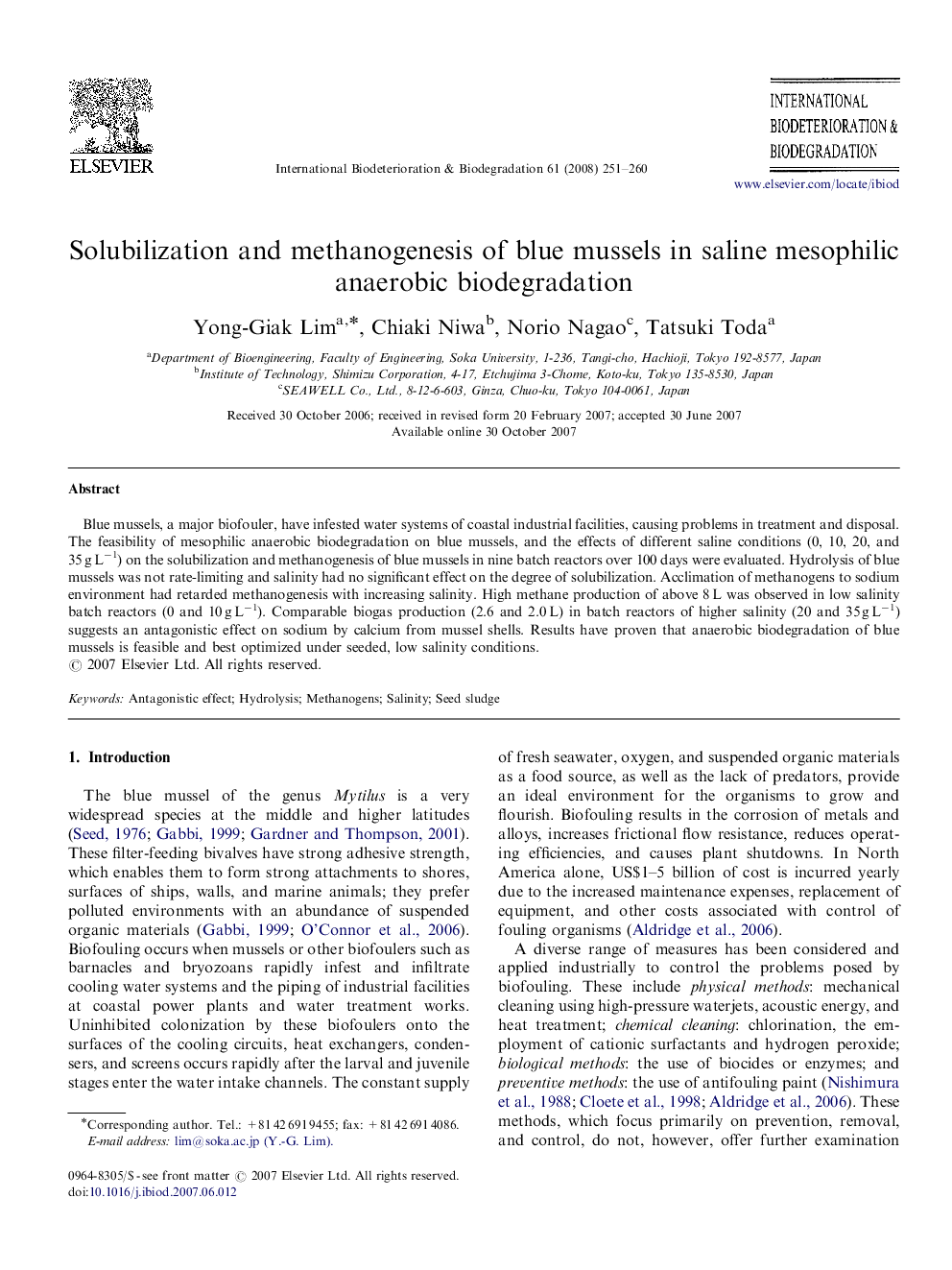| Article ID | Journal | Published Year | Pages | File Type |
|---|---|---|---|---|
| 4365950 | International Biodeterioration & Biodegradation | 2008 | 10 Pages |
Blue mussels, a major biofouler, have infested water systems of coastal industrial facilities, causing problems in treatment and disposal. The feasibility of mesophilic anaerobic biodegradation on blue mussels, and the effects of different saline conditions (0, 10, 20, and 35 g L−1) on the solubilization and methanogenesis of blue mussels in nine batch reactors over 100 days were evaluated. Hydrolysis of blue mussels was not rate-limiting and salinity had no significant effect on the degree of solubilization. Acclimation of methanogens to sodium environment had retarded methanogenesis with increasing salinity. High methane production of above 8 L was observed in low salinity batch reactors (0 and 10 g L−1). Comparable biogas production (2.6 and 2.0 L) in batch reactors of higher salinity (20 and 35 g L−1) suggests an antagonistic effect on sodium by calcium from mussel shells. Results have proven that anaerobic biodegradation of blue mussels is feasible and best optimized under seeded, low salinity conditions.
